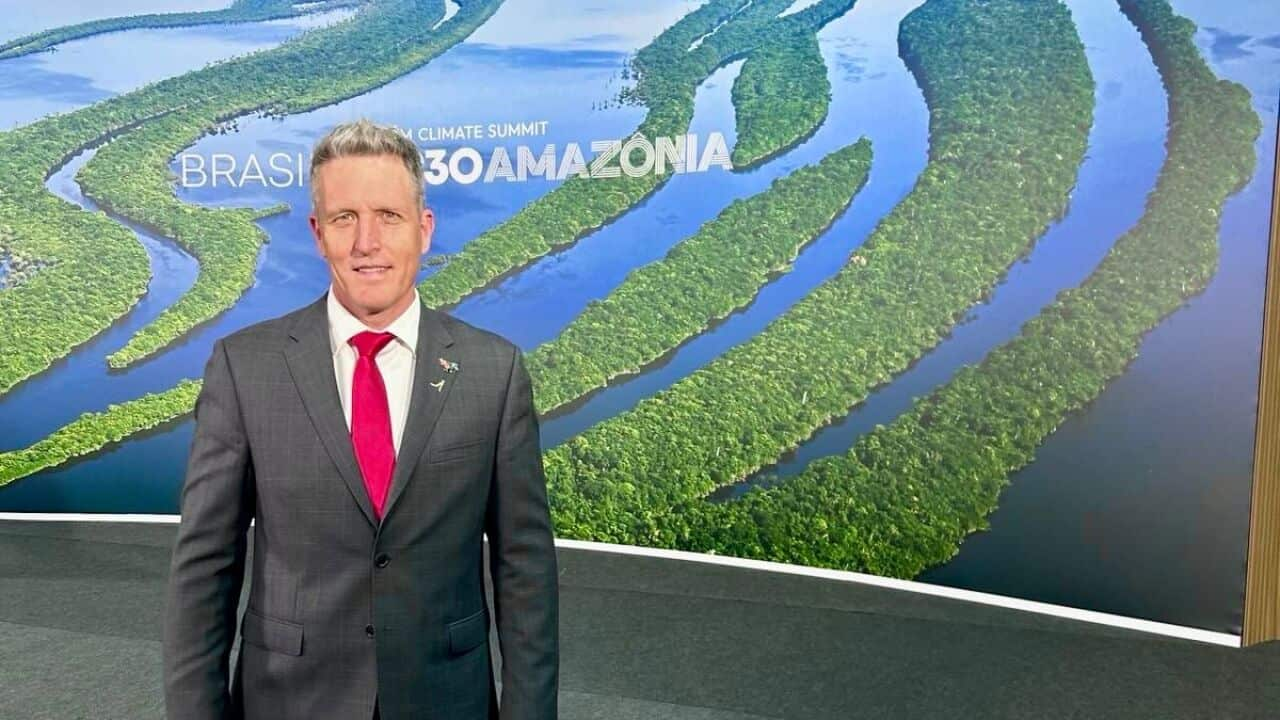When Vanessa Penna left Brazil in 2015 to pursue a PhD in neuroscience, she was driven by a desire to help more people through science.
What she didn’t expect was that the journey would also lead to a new life.
Awarded a scholarship by the Australian government, she later gained permanent residency in 2021 through the prestigious Global Talent Visa (now called the National Innovation Visa), granted in recognition of her contributions to clinical research.
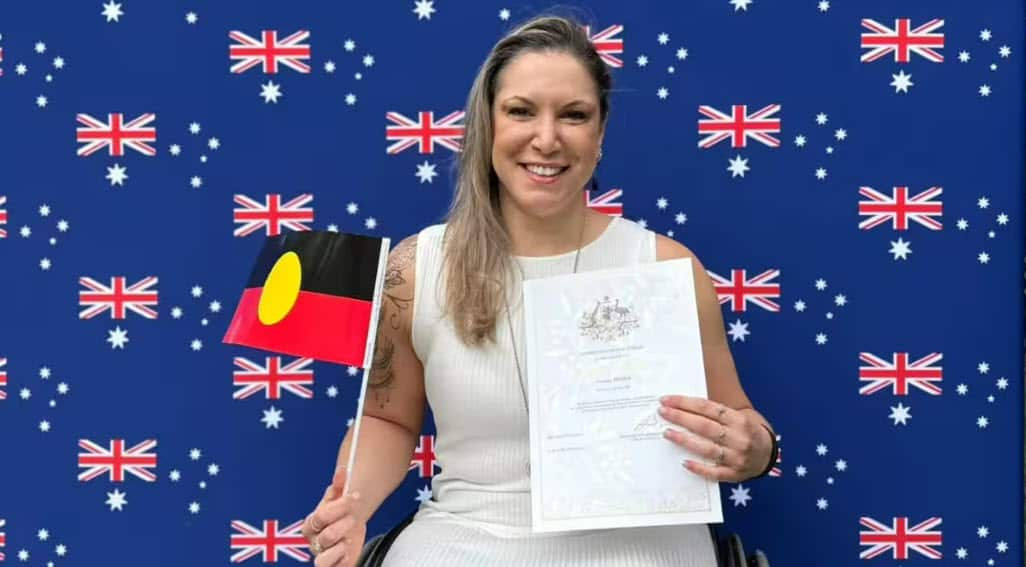
Today, the 43-year-old scientist manages human trials for innovative cancer treatments.
Her journey hasn’t been without challenges. During this time, Penna was diagnosed with a rare condition and has used a wheelchair for the past seven years.
Despite the challenges of being a migrant in a new country, a woman in a male-dominated field, and living with a rare health condition, nothing has stopped her from making her mark in science and advocating for a more inclusive society.
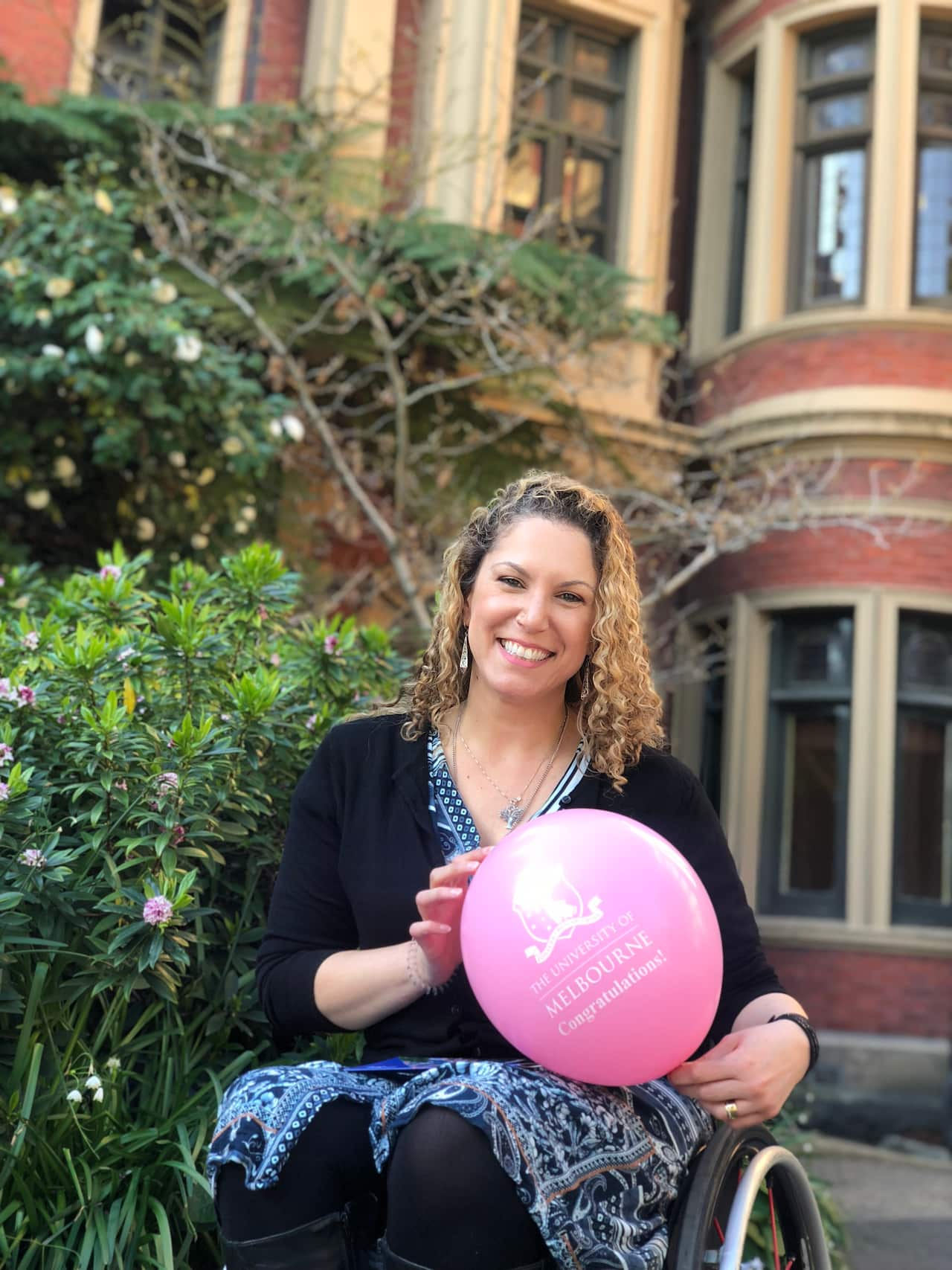
After six years as a dentist in Brazil, Penna chose a new direction. She completed a degree in biotechnology and a masters degree in tissue engineering, while exploring options for scholarships abroad.
"I spent about a year researching how to get an international scholarship and what the application criteria were," she said.
To maximise her chances, she reached out to 60 laboratories worldwide.
"Each email was personalised, hence I read their articles carefully and made sure to understand how my background (could) fit into their work before reaching out," she said.
She ended up choosing the University of Melbourne, where she completed her PhD in neuroscience in 2019.
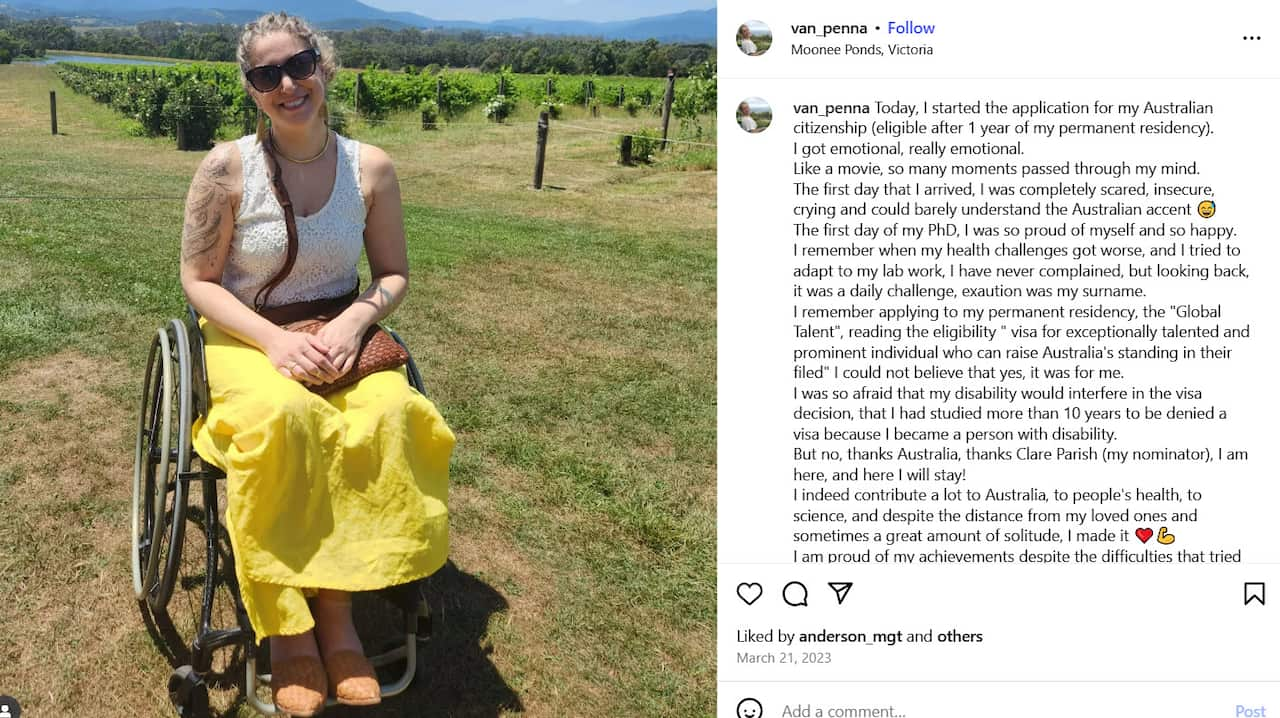
Penna began applying for jobs even before finishing her PhD. A year later, she landed her first role in clinical research:
"It was a very basic role, almost like an assistant, handling documentation. I learned that a bit of humility goes a long way, especially when you’re starting over in a new country," she said.
Today, she manages clinical trials for a new treatment for prostate cancer.
She is also responsible for selecting the hospitals that will conduct the studies and for monitoring the final results.
The study, currently in the testing phase, has the potential to revolutionise the approach to treating prostate cancer with target radiation.
"It is a relatively new technology. It uses antibodies to direct radiation directly to cancer cells, sparing healthy cells," she said.
"The antibodies, engineered to bind to a protein highly expressed in prostate cancer, known as PSMA, deliver radiation directly to the tumour. Even tiny tumours, still invisible in imaging tests, can be reached."
According to her research, many patients in these trials have exhausted all other treatment options.
If successful, it could be life-changing for patients with prostate cancer.
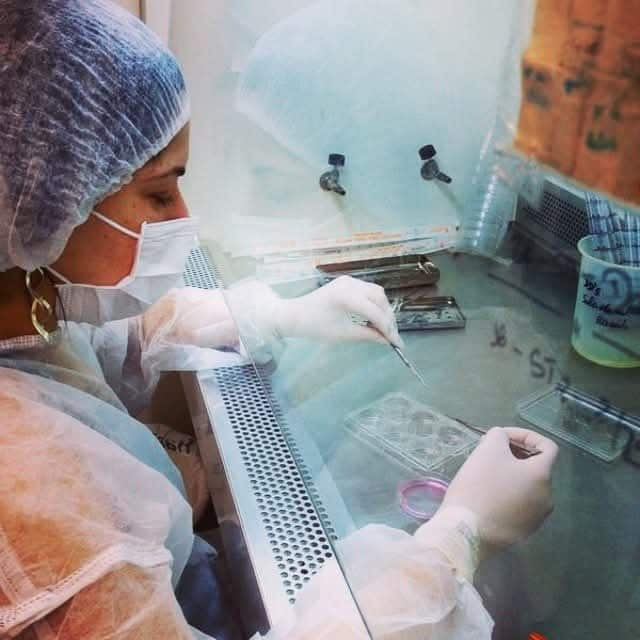
Penna first noticed signs of mobility issues while still living in Brazil, but it was during her PhD in Australia that she gradually began to lose function in her legs.
"At 23, I started having trouble running ... I saw several neurologists, but it took 14 years to get a proper diagnosis," she said.
She eventually had her genome sequenced to uncover the cause: a rare condition called Pure HSP (Hereditary Spastic Paraplegia) 5A.
"According to scientific papers, I’m one of the few people in the world diagnosed with this specific condition. It got worse over time — from (using) a cane to two crutches, and now I’ve used a wheelchair for seven years," she said.
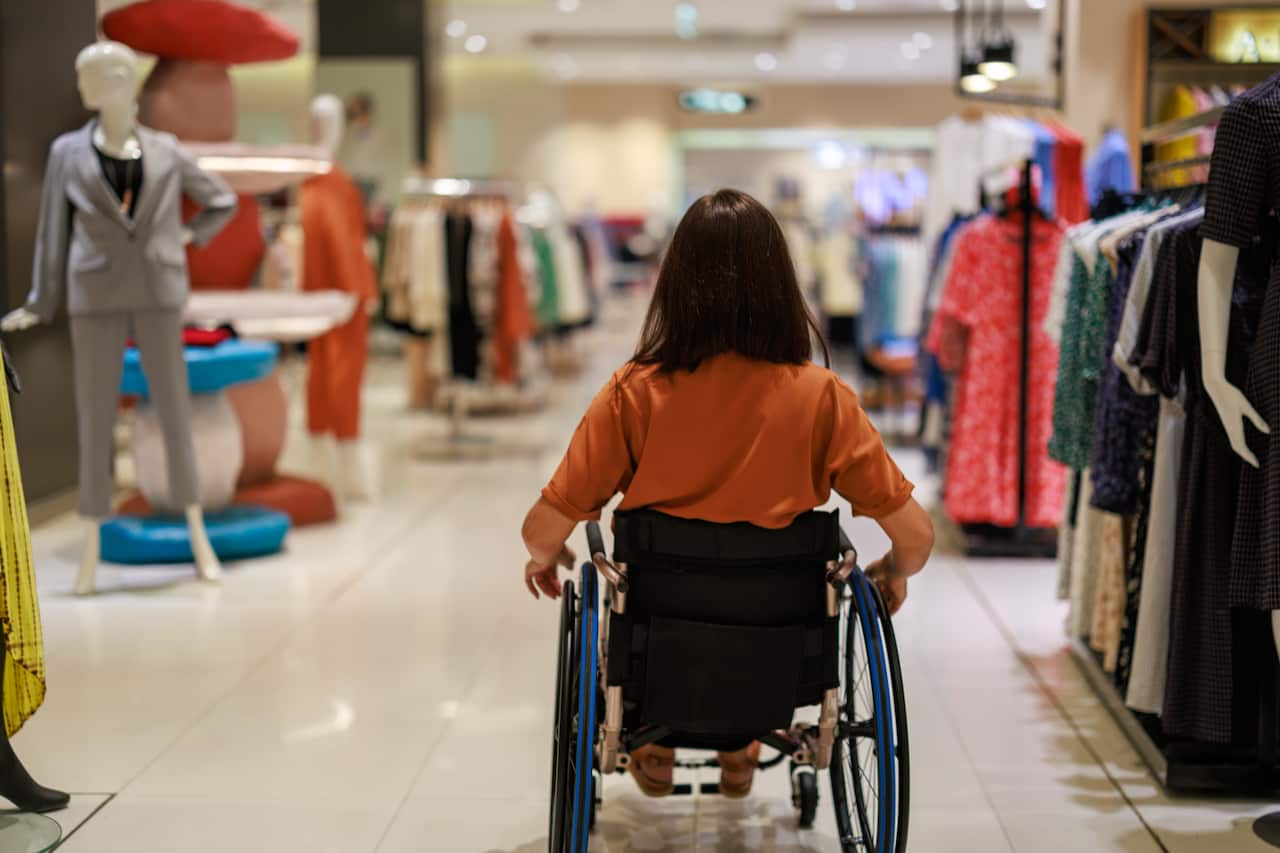
Living in both Brazil and Australia — and experiencing life with and without a disability — gives her a unique perspective on inclusion.
"Discrimination exists in both countries. It’s something I continue to face and also navigate," she said.
The stigma is more visible and obvious in Brazil.
"When I go shopping (there), people speak to me in a baby voice, as if I am a child, or ignore me entirely, talking to the person accompanying me instead," she said.
By contrast, Australia offers a more supportive system — though not without its own issues.
"In Australia, discrimination is more subtle — like looks or comments — but it’s still there. However, the system focuses on rehabilitation and supporting people to be productive members of society," she said.
Lessons from a 10-year journey
Penna hopes to inspire others to pursue new paths and follow their dreams.
"My job doesn’t require me to run a marathon. So why shouldn’t I be able to do my job like anyone else? You need a long-term plan and a backup plan. Things rarely go exactly as expected," she said.
"Focus on taking small steps and celebrating small wins. For me, it took 10 years to go from dentistry to becoming a scientist and gaining permanent residency here. Persistence and resilience are everything."
Follow SBS Portuguese on Facebook, Twitter, Instagram e You Tube.
Subscribe to 'SBS Portuguese' on Spotify, Apple Podcasts, iHeart Podcasts, PocketCasts or wherever you get your pocasts.


